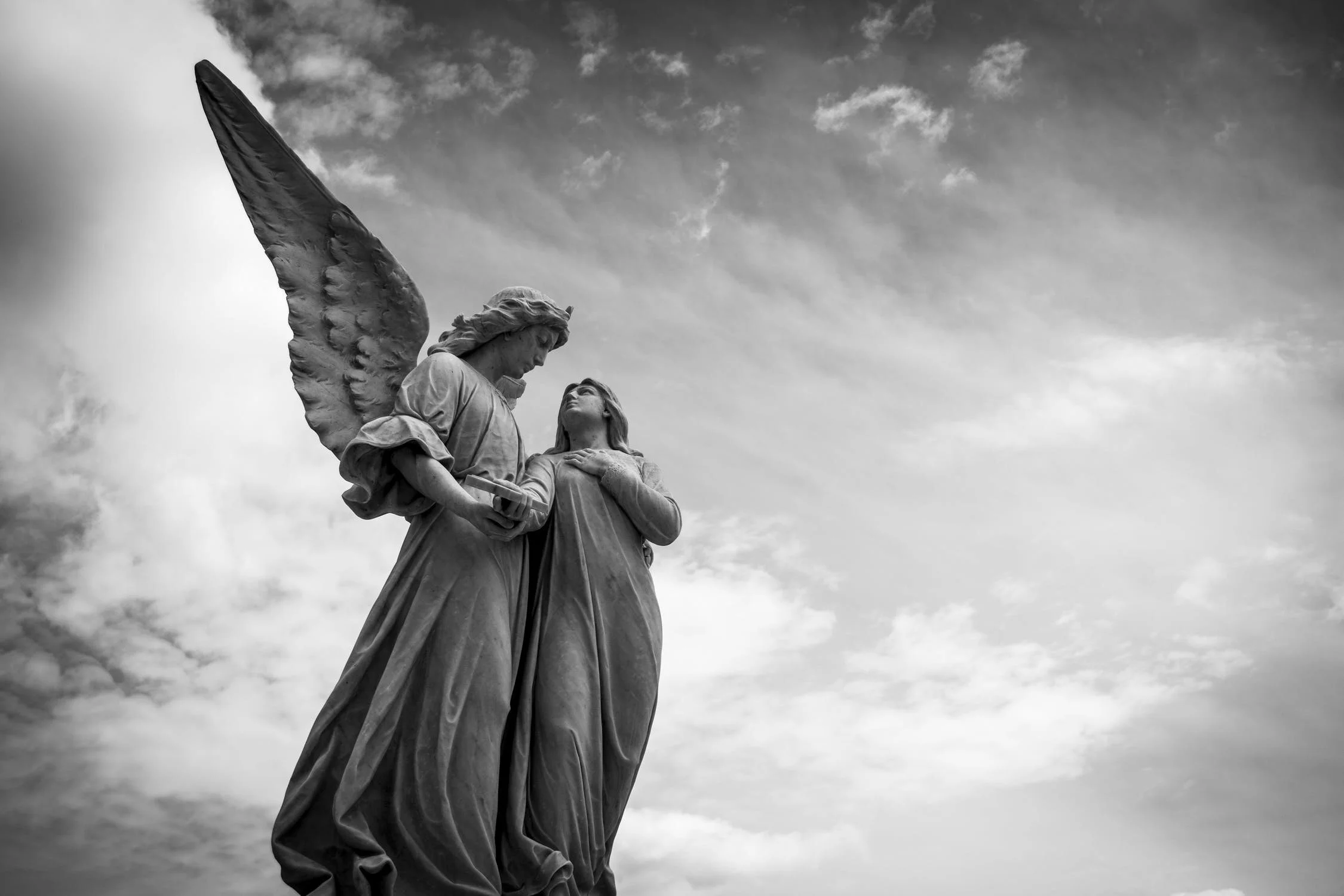The Doctrine of the Church
As we continue sharing our doctrinal beliefs, we want to talk about how we view the Church. We believe in the Church, one universal and spiritual body, of which Christ is the head, gathered in local bodies, to whom has been committed the ordinances of believers baptism and the Lord's supper, with the corporate purpose of glorifying God through worship, the edification of the saints, and the communication of the gospel to the world.
What is the Church?
The Universal Church
The church is made of up all believers in Jesus Christ whom the Holy Spirit has incorporated into the one, holy, universal, apostolic, spiritual body of Christ (Eph. 4:4-6; Col. 1:18) when they were regenerated (1 Cor. 12:13; Titus 3:5). It manifests itself in complete local bodies characterized by mutual unity in diversity (Rom. 12:4-8; 1 Cor. 12:12-27; Eph. 1:22-23). The church was the mystery looked forward to in the Old Testament (Joel 2:28-32; Eph. 3:4-7), prophesied by Jesus (Matt. 16:18-19; Acts 1:5) and begun at Pentecost by the Holy Spirit (Acts 2). It is the community of the king, a witness to His kingdom (Eph. 3:10-12; Col. 1:13). While there is one people of God throughout time (Rom. 11:17-24; 1 Pet. 2:9-10), the seed of Abraham (Rom. 4:12; Gal. 3:29), who have all been saved by grace through faith in the promises of God based on the atoning death of Christ (Rom. 4:11-12; Gal. 3:28-29; Heb. 11; 1 Pet. 2:9-10, the church is distinguished from Israel in such matters as stewardship of God's redemptive purpose, government, worship, membership requirements. The purpose of the church, enabled by the gifting of the Holy Spirit, is to glorify God through worship, the proclamation of the gospel for the purpose of making disciples and the building up of the Body of Christ (John. 17:10; Eph. 1:3-14; Mt. 28:19-20; Eph. 4:11-12).
The Local Church
The local church is an organized assembly of baptized believers gathered in one locality (1 Cor. 1:2; Rev. 2-3). It is a fellowship of true disciples all of whom are priests before God (Eph. 4:12-16; 1 Pet. 2:5, 10), and characterized by unity in diversity (1 Cor 12; Rom. 12:4-8). Membership in a local church is expected of all believers (Acts 2:38-42; Heb. 10:25) and its requirements are repentance, faith in Jesus, and baptism (Acts 2:38-41, 47; John 3:1-5; Matt. 28:19-20). The purpose of the local church is to bring glory to God through corporate worship, proclamation of the Word, fellowship, administration of the sacred ordinances, edification of the believers for service, and fulfillment of the Great Commission (Acts 2:42, Heb. 10:24-25; 1 Cor. 11:24-25; Eph. 4:11-13; Matt. 28:18-20).
I believe that the local church has been given two offices: elders (for spiritual oversight of the body) and deacons (for service of the body). They are to be appointed by the body according to their spiritual qualifications (1 Tim. 3:8-13; Tit. 1:5-9).
The local church was given two offices: elders or overseers (often called pastors) (Eph. 4:11; 1 Tim. 3:1-7; Titus 1:5-9) and deacons (Acts 6:1-7; Phil. 1:1; 1 Tim. 3:8-13). They are chosen by the body and appointed by the elders on the basis of their spiritual qualifications (Deut. 1:13; Acts 6:3; Titus 1:5). Elders are men whose primary responsibility is spiritual care of the body by means of shepherding (Acts 20:28; 1 Pet. 5:2), leading and teaching by example (1 Thess. 5:12; 1 Tim. 3:2; 5:17; 1 Pet. 5:3) and equipping (Eph. 4:11). Deacons are men or women whose primary responsibility is assisting the elders and leading in the administration of the service to the body. Members of the church are baptized believers who exercise their spiritual gifts for the work of the body (1 Cor. 12:12-27; Eph. 4:13-16).
The local church was given two holy ordinances which are occasions of gracious blessing for faithful participants. One is believer baptism by immersion in water which is a public confession of personal conversion, identification with Christ and His church and baptism with the Holy Spirit (Matt. 28:19; Acts 2:41; 8:36; 10:47; 16:33). The other is the Lord's supper which is a remembrance of Christ's redeeming work (Luke 22:17-20; 1 Cor. 11:23-26), a time of thankfulness, confession and forgiveness, and worshipful fellowship with our Lord and His body (Matt. 5:23-24; 1 Cor. 11:27-32), and a time of looking forward to Christ's return (1 Cor. 11:26).
The local church and its members are to be separated from unbelief and immorality (1 Cor. 5:9-11; 2 Cor. 6:14-18), disciplining its own members (Matt. 18:15-17; 1 Cor. 5:2-5, 13; 6:1-8; Titus 3:10-11). The local church, while being independent, should cooperate with other local churches for missions, caring for the poor, and councils for ordination and other matters of mutual interest (Acts 15:6-23; 2 Cor. 9:1-5). Individual believers must unite with a local church and participate in its ministry (Heb. 10:25).
Who is the Church?
Universal Church
The universal Church consists of all those who have been incorporated into the Church by the Holy Spirit through faith in Jesus Christ (1 Cor. 12:13; Gal. 3:27) at all times and places (Eph. 1:22-23; Heb. 12:23). There is therefore no distinction among people with regard to membership in the universal church (Rom. 3:22; Gal. 3:28) and this Church stands united through the one triune God (Eph. 4:4-6), one Gospel (Eph. 4:5), and one foundation (Matt. 16:18; Eph. 2:20). The universal Church is the Body of Christ (2 Cor. 3:11; 12:27; Col. 1:24-27) of which He Himself is the head (Col. 1:18; Eph. 1:20-23) and as such is the primary means by which Christ works in the world (Eph. 2:10; 4:12). The purpose of the universal church is twofold: first, to love God (Matt. 22:37) through worship (Phil. 3:3), prayer (Acts 2:42), the sacraments (Matt. 28:19; 1 Cor. 11:23-26), and faithful obedience (Col. 3:12-17); and second, to love other people (Matt. 22:38) by seeking to build up and encourage other believers (1 Cor. 14:12; Heb. 3:13), evangelize non-believers (Matt. 28:19-20), and help the needy (Matt. 25:32-46).
The universal Church is the Church began at Pentecost with the outpouring of the Holy Spirit (Acts 1:8; 2:1-4) and was predicted by Jesus (Matt. 16:18). The Church is a part of the Kingdom of God (Acts 8:12; 2 Tim. 4:1) and a continuation of God’s work with Abraham and the nation of Israel (Rom. 11:17; Gal. 3:29) though there remains some distinction (Rom. 11:17-24) and a future hope for the salvation of Israel (Rom. 11:11-32).
Local Church
The local church is the local community of those who have believed in Christ (1 Cor. 1:2) and have been indwelt and empowered by the Spirit (1 Cor. 12:13; Gal. 3:27). As such it is the visible manifestation of the universal church in a given location (1 Cor 1:2; 2 Cor 1:1; 1 Thess. 1:1) and therefore manifests the nature and carries out the purposes of the universal Church in its location. Every believer has been commanded to be a regular and active member of a local church (Heb. 10:25) and only those who believe in Jesus Christ, confess Him as their Lord are eligible for membership in a local church (1 Cor. 1:2). The local church is not a pure entity as not everyone who is a part or even a member of a local church is a member of the universal church (Matt. 13:24-30; 2 Pet. 2:1; Jude 4) and even believers often lead less than exemplary lives (Acts 6:1; 1 Cor. 1:10-12; 1 Cor. 5).
The local church should exhibit several important characteristics. Each local church should be committed to the purposes of the universal church. It should support and defend sound doctrine (Rom. 16:17), both corporate and personal holiness (1 Cor. 5:1-8; Eph. 5:27), and unity within the church (John 10:16; 17:23). Thus the local church must seek to avoid division (Rom. 16:17-18; 1 Cor. 1:10) and must at times lovingly reprove those who have fallen into false teachings or sin (Matt. 7:15-20; 18:15-20; Gal. 6:1-2). The local church should meet regularly (Heb. 10:25) and be characterized by ongoing fellowship (Acts 2:42) and deep love for one another (John 13:34; Rom. 12:10).
The local church should also regularly practice the sacraments of Baptism and the Lord's Supper. Both of these were instituted by Christ (Matt. 28:19-20; Luke 22:17-20), should be a continuing practice of the church (Acts 2:38; 1 Cor. 11:23-26), and may be administered by any believer as a priest before God (1 Pet. 2:9). Baptism is an external, symbolic proclamation of our union with Christ in His death, burial, and resurrection (Matt. 3:25; Rom. 6:1-11), the beginning of our new life with Christ (Rom. 6:4), and our incorporation into the church by the Spirit (1 Cor. 12:13). As a symbol of a spiritual reality, baptism is for believers (Acts 2:38), and thus not for infants too young to profess personal faith, and should be performed shortly after conversion (Acts 8:38). The mode of baptism is not commanded in Scripture and though the symbol of baptism would seem to be best represented by immersion, we should allow some latitude. The Lord’s Supper is a symbolic memorial of Jesus’ sacrificial death that should be practiced regularly by the church (1 Cor 11:23-26), as a proclamation of the sacrificial love of Jesus (1 Cor 11:26), and as a declaration of our unity as a Body (1 Cor 10:17; 11:17-22, 27-34). As such the Lord’s Supper should not be taken in isolation from the rest of the Body and both elements should be taken by every believer (Luke 22:17; Mark 14:23). Therefore, both of these sacraments are symbols rather than means of grace (Rom. 3:28; 1 Pet. 3:21).
With regard to the leadership of the church, every local church is under the headship and therefore the authority of Jesus Christ (Col. 1:18; Eph. 1:20-23). Additionally, every believer is a priest before God (1 Pet. 2:9; Rev. 1:6), of equal standing with regard to justification (Gal. 3:28), and gifted for service (1 Pet. 4:10). But God has gifted certain individuals to serve a leadership function within the church (Eph. 4:11) and all believers are called to voluntarily submit themselves to those leaders (Heb. 13:17). The Bible proscribes that all Christian churches have a plurality of leadership (1 Tim. 5:17; Titus 1:5); qualified leadership (1 Tim. 3:1-13; Titus 1:5-9); and congregational involvement in the selection (Acts 6:1-5) and correction (1 Tim. 5:19) of these leaders. As a manifestation of the universal church, the local church has no external authority other than Jesus Christ (Col. 1:18; Eph. 5:23) though it should strive for unity of faith and cooperation of ministry with other local churches (Acts 15; 2 Cor. 11:9).
The Purpose of the Church
Universal Church
All who place their faith in Christ are immediately baptized by the Holy Spirit into the church (Rom. 8:9; 1 Cor. 12:12-13), which is one universal and spiritual body (Eph. 1:22-23; 2:21-22; 4:4-6). Christ is the builder of the church (Matt. 16:18), and He is the head of the church, ruling over it as supreme authority (Eph. 5:23; Col. 1:18). Christ nourishes and cherishes the church (Eph. 5:29-30), effecting its growth (Acts 2:47; Eph. 4:15-16). As the body of Christ, the purpose of the church is to be the representation of Christ here on earth (John 17:18; 2 Cor. 5:17-20; Eph. 1:22-23), bringing glory to God (Eph. 3:20-21) through worship (John 4:23-24; Rom. 15:5-6; Col. 3:16-17), through building itself up in the faith by the fellowship of the saints (Acts 2:41-42; Heb. 10:24-25) and the instruction of the word (Eph. 4:11-13; Col. 1:28-29), and finally through the communication of the gospel to the entire world (Matt. 28:19-20; Acts 1:8).
The church is a mystery, foretold by Jesus (Matt. 16:18-19; Acts 1:5-8), but not fully revealed until this age (Eph. 3:3-6; Col. 1:25-27). It began at Pentecost (Acts 2), but will not be completed until the Rapture (1 Thess. 4:13-18). The church is a part of the people of God from all ages who have been saved by grace through faith (Rom. 4:3-5; Gal. 3:29; Heb. 11:39-40); however, the church is distinct from the nation Israel, which yet has a separate and fundamental role in the kingdom purposes of God (Rom. 11:23-27).
Local Church
The local church is the visible representation of the universal church, gathered in organized (1 Cor. 14:40), local (Acts 11:22; 13:1), autonomous, interdependent assemblies (2 Cor. 9:1-5; Phil. 4:15; 3 John 5-8) for the same purpose as the church universal. These assemblies are made up of professing, baptized believers (Acts 2:37-41), who are unified in their diversity (Rom. 12:4-8; 1 Cor. 12:12-27), and gifted as individuals by the Holy Spirit with a divine enablement for the welfare of the church (1 Cor. 12:4-7). A11 believers must be joined with a local body for mutual encouragement and accountability (Heb. 10:24-25), and to exercise their spiritual gift for the welfare of the body (1 Pet. 4:10).
Christ is the head of the church. Under Christ's headship, the final authority for each local church rests with the congregation itself (Matt. 18:17; Acts 6:3-5, 15:2-3; 1 Cor. 5:12), that is, the assembly of Spirit-led believers (1 Pet. 2:9-10; Rev. 1:6).
God has ordained two offices for the administration and benefit of the church (Phil. 1:1): Elders, also called pastors and overseers (Acts 20:17,28; Titus 1:5-9; 1 Pet. 5:1-4), and deacons (1 Tim. 3:8-13). These are to be selected by the body according to biblical qualifications (1 Tim. 3:1-13; Titus 1:5-9). Elders are men who shepherd the church, exercise oversight (1 Pet. 5:2), teach, correct (Titus 1:9), and equip believers for ministry (Eph. 4:11-12). Deacons function as servants within the body.
Two ordinances have been committed to the church: baptism (Matt. 28:19) and the Lord's supper (1 Cor. 11:23-25). Baptism by immersion (Acts 8:38) is the initiatory ordinance of the church. It functions as a confession of faith for a new believer (Acts 2:37-41; Acts 16:14-15), and as a public identification, both with Jesus Christ in His death, burial, and resurrection (Rom. 6:5), and with His church (Acts 2:41; Gal. 3:27-28). It is an outward symbol of a spiritual change in which a believer has died to his old life of sin, and been raised to a new life in Christ (Rom. 6:3-6). The Lord's Supper is a continuing ordinance of the church, functioning as a symbolic reminder of the redemptive work of Jesus Christ (1 Cor. 11:24-25). It is to be observed soberly (1 Cor. 11:27-30), in remembrance of His death, in celebration of our present union with Him and His people (1 Cor. 10:16-17), and in anticipation of His soon coming (1 Cor. 11:26).











